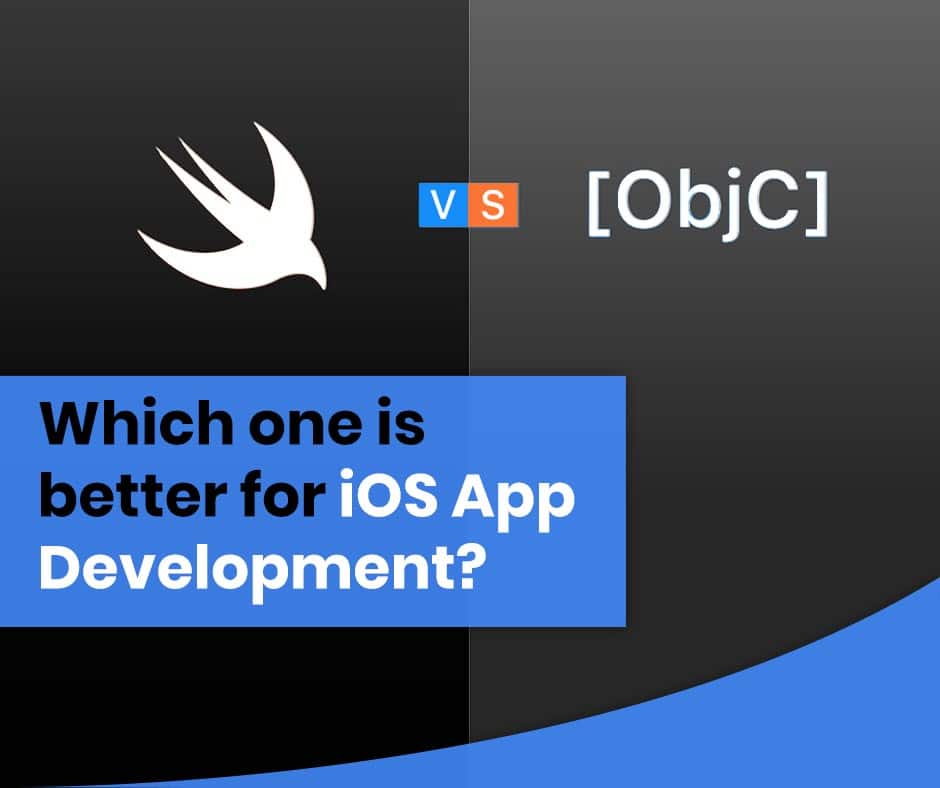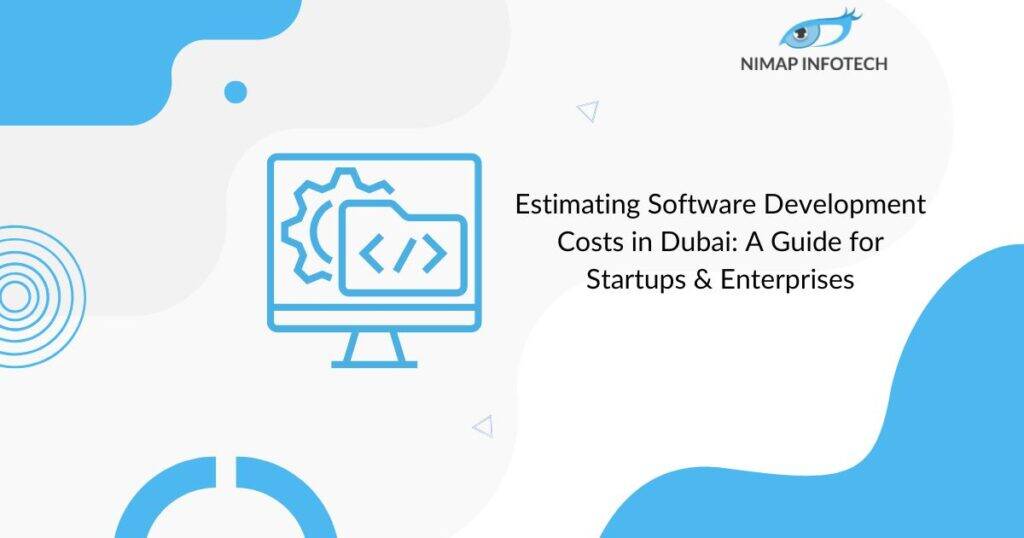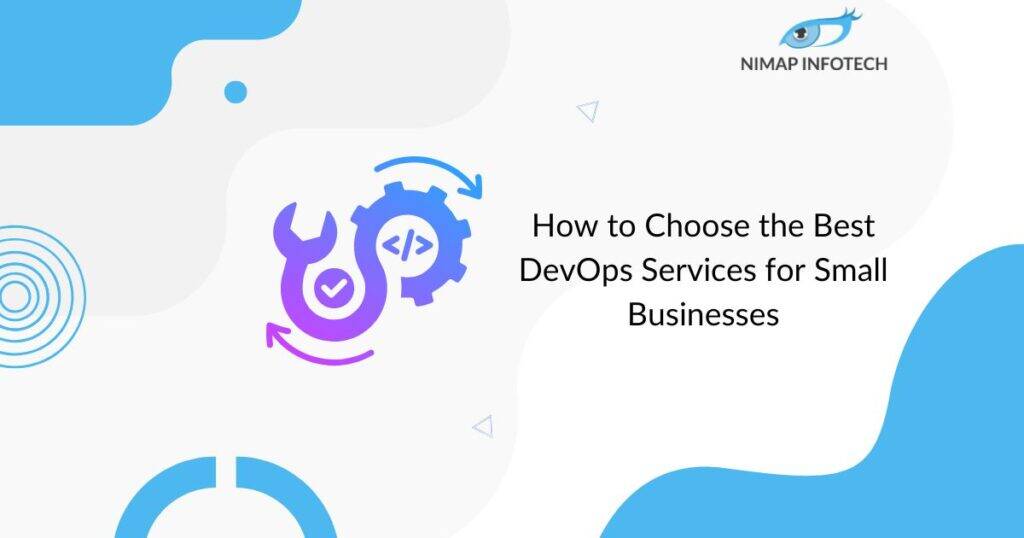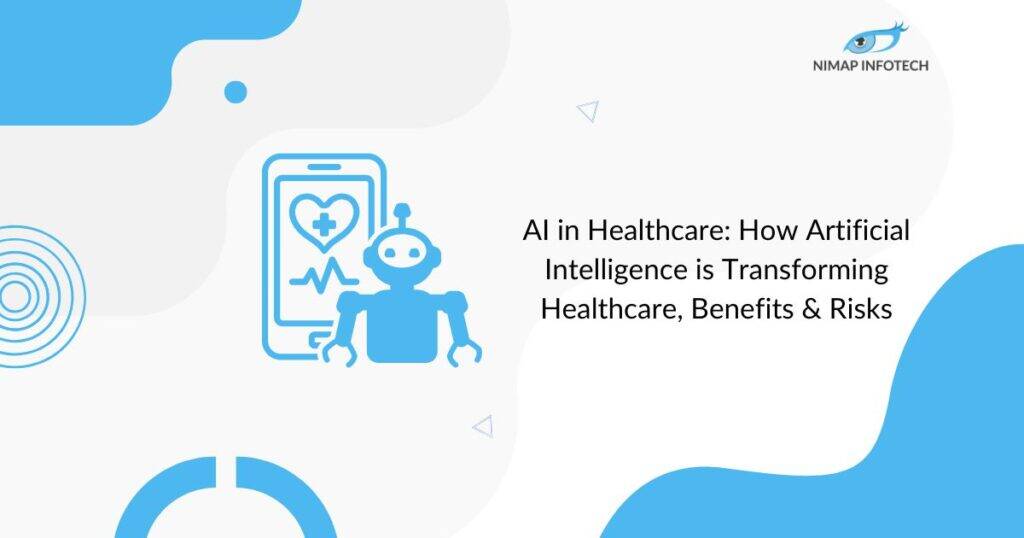Table of Contents
ToggleWhat is Swift?
Swift is a programming language developed by Apple for building iOS, macOS, watchOS, and tvOS applications. It was first introduced in 2014 as a replacement for the Objective-C language. Swift is designed to be safe and quick, and it is aimed to be simple to read and write. Since the language is statically typed, variables’ data types must be declared before they are used. Swift also incorporates modern programming language features such as closures and generics, making it a powerful and flexible language for building a wide variety of applications.
What is Objective C?
Objective-C is a general-purpose, object-oriented programming language that is widely used for developing applications for Apple’s Mac OS X and iOS operating systems. Until Swift’s introduction in 2014, it was the primary programming language for Apple’s macOS and iOS operating systems. As a high-level language that is a superset of the C programming language, Objective-C offers more object-oriented features while yet being completely compatible with C. Compared to static languages, it uses a dynamic runtime, which offers greater flexibility and usability. Objective-C is still used in some legacy projects and has good community support.
Advantages of Swift:
1. Swift Runs Faster, almost as fast as C++:
And with the newer versions of Xcode released in 2020, it is much faster than before.
2. Swift is easier to read and implement, and is easier to learn than Objective-C:
Objective-C is over 30 years old now and that means that it has a more clunky syntax. Swift is able to streamline code and more closely resembles readable English, similar to C#, C++, JavaScript, Java, and Python. Developers experienced in these languages can easily pick up swift pretty quickly. Also Swift requires less code. Compared to Objective-C which is verbose when it comes to string manipulation, Swift employs string interpolation without the use of tokens or placeholders.
3. Unified files make code easier to maintain:
Again, an age-old standard is holding the C language holds Objective-C back. This is the two file requirement. This means that programmers and developers need to update as well as maintain two separate files of code, compared to Swift, this becomes one. That means less work for programmers and developers, but this does not come at the cost of speed for the front end.
4. Better Compilers mean a better coding experience for developers and programmers:
Swift is built-in with a Low-Level Virtual Machine(LLVM), this is a compiler that is used by languages like Scala, Ruby, Python, C# and Go. The LLVM becomes smarter and faster than previous C compilers. So more workload becomes transferred from the programmer to XCode and the compiler.
5. No pointer means Swift is more secure:
Objective-C similar to C language makes use of pointers, a method that exposes values more directly to data. The problem with using pointers is that it makes and causes vulnerabilities in security. They also create a barrier for finding and fixing bugs. However using Swift, your code’s pointer is missing a value(a nil value) instead of continuing to run the app, it causes the app to crash and allows you to find and fix the bug on the spot. You will also have cleaner code and you will spend less time looking for bugs down the road, as time passes by.
6. Better management of memory:
Memory leaks can occur in object-oriented programming, apps and they are known to decrease the available memory for an app to run causing the app to fail. Typically, Cocoa Touch APIs used to support Automatic Reference Counting(ARC). This is a streamlined way to handle memory management. But when looked upon in the context of the core graphics API, ARC is not available, it is up to the developer. This is a common pitfall when an app is using big data buffers, video or graphics. When the amount of memory used is just too much during a memory leak, the app becomes shut down by the operating system. In order to fix this Swift supports ARC across APIs and this stability means that programmers have to spend less time focusing on memory management.
Hire Swift Developer
Advantages of Objective C:
1. Backward compatibility:
Backward compatibility is one of Objective-primary C’s features. Because Objective-C has been around for a long time, developers have a large library of pre-existing code and resources to employ.
This implies that developers may use existing code and frameworks while developing apps to save time and money. Furthermore, Objective-C is backward compatible with previous versions of Apple’s operating systems, making it easier for developers to maintain and upgrade their programs.
2. Performance and stability:
Another advantage of Objective-C is its performance and stability. Objective-C is a mature and well-established programming language that has been thoroughly tested and polished over time. As a result, it is a robust and dependable language for developing high-performance programs. Furthermore, the Objective-C runtime environment is tuned for Apple’s hardware and operating systems, so programs written in Objective-C will perform well on Apple devices.
3. Development community:
Objective-C has a huge and active development community as well. Objective-C, one of Apple’s oldest programming languages, has a large and active developer community that shares expertise, tools, and best practices. This implies that when working with Objective-C, developers may quickly discover answers to issues and solutions to difficulties. Furthermore, several third-party libraries and frameworks available for Objective-C may assist developers in rapidly and simply adding functionality and features to their projects.
4. Freedom and flexibility:
Objective-C also provides developers with a great level of freedom. Objective-C, unlike other languages, is a dynamic language, which means it can be used to construct objects and methods at runtime. This enables developers to construct very adaptable and adjustable programs, allowing them to adapt to changing requirements and user needs. Furthermore, Objective-dynamic C’s binding feature allows developers to alter an object’s behavior during runtime, which may be valuable for designing apps that respond more quickly to user interaction.
5. Simplicity:
Another advantage of Objective-C is its simplicity. The syntax of Objective-C is clear and straightforward, making it simple to learn and understand. This makes it a language accessible to developers of all skill levels, and it might be an excellent alternative for novices learning iOS and macOS app development.
Furthermore, the syntax of Objective-C is similar to those of other popular programming languages as Apple C and C++, making it easier for developers who are already familiar with other languages to learn Objective-C.
Read More: Factors to Consider before Outsourcing iOS App Development
Features of Swift:
- Concise code syntax: Swift’s syntax is meant to be simple to understand and execute, making it an ideal choice for both novice and expert developers. Swift’s type system and automated reference counting eliminate several common programming problems, including null pointer dereferencing and buffer overflow.
- Automatic memory management system: Swift includes an automatic memory management method called Automatic Reference Counting (ARC) to manage memory, which eliminates the need for developers to manage memory or worry about memory leaks manually.
- Easy to learn: Swift’s syntax is meant to be simple to understand and write, making it an excellent choice for both new and experienced developers.
- Speed: Swift is built to be Fast. It is touted as fast as C code but without the C-level cost.
- Safe programming language: Swift’s type system and automated reference counting eliminate many common programming problems, such as null pointer dereferencing and buffer overflows, making it a safe programming language to employ while designing apps.
Features of Objective-C
- Dynamic binding: Because Objective-C employs dynamic binding, the method called on an object is determined at runtime. This provides additional flexibility and may make it easier to develop more responsive apps.
- The syntax is similar to Smalltalk: The syntax of Objective-C is comparable to that of Smalltalk, another object-oriented programming language. This syntax is comparable to other popular programming languages, such as C and C++, making it easier to read and understand.
- Dynamic typing: Objective-C is a dynamic language that may be used to construct objects and methods during runtime. This provides additional flexibility and may make it easier to develop more responsive apps.
- Interoperability with C: Objective-C is fully compatible with C, allowing developers to easily utilize C libraries and code in Objective-C. This might be handy for using existing code and resources when developing apps.
- Huge and active developer community: Because Objective-C has a large and active developer community, developers may readily discover answers to queries and solutions to difficulties while working with it. Furthermore, several third-party libraries and frameworks available for Objective-C may assist developers in rapidly and simply adding functionality and features to their projects.
- Garbage collection: Objective-C includes a garbage collection feature to help developers manage memory and minimize memory leaks.
Recommended Read: Pros and Cons of Swift for iOS Development
Swift vs Objective C
| Points | Swift | Objective C |
| Syntax | Swift’s syntax is simple and easy to understand, similar to that of other current programming languages. | Objective-C uses a lot of square brackets and semi-colons in its syntax. |
| Class | Swift only supports classes. | Objective C supports both structures and classes. |
| Dynamic Libraries | Swift offers dynamic libraries, which make code sharing and distribution simple. | Objective-C lacks built-in support for dynamic libraries, code sharing is more challenging. |
| Polymorphism | Typecasting can be used to provide polymorphism, although it does not exist directly. | At build time, Objective C checks for metric polymorphism. |
| Design | Apple created this to produce sturdy Apple operating systems. | It was created with C++ in mind, as well as the goal of being Object Oriented. |
| Libraries and Templates | Objective C lacks template libraries. | Swift provides multiple library support. |
| License | It is an open source project licensed by Apache. | It is released under the GNL (General Public License ) |
| Package Administrator | Swift has package management that makes it simple to exchange and reuse code between projects. | Objective-C has built-in package management, it is more difficult to exchange and reuse code. |
| Boolean Expressions | Swift makes use of true and false values. | YES and NO values are used in Objective C. |
Swift vs Objective C: Which is better?
There are many elements to consider to decide the best between these two dialects. Relatively, Swift is a later language while Objective C has been there since the last part of the 80s. The capacity for the language to remain comparable to the market request will be delegated awesome!
Both these dialects can make a local iOS application that is practically unclear from one another. Thus, functionality is the deciding element! It is accounted for that Swift uses 60% lesser code than Objective C. As true C has been around any more time, the commonality of the language and openly accessible assets can be an essential variable as well!
Also Read: iOS App Development Trends to Watch Out in 2023
Conclusion on Swift vs Objective C:
There is no doubt that Swift is the future for iOS app development. It is time Objective-C took a back seat and enjoyed the show put up by its successors. If you liked this Swift vs Objective-C article, then do check out our other blogs as well. If you are looking to hire Swift developers or looking to develop an iOS app then do contact us at enquiry@nimapinfotech.com. We have talented developers ready to onboard your project in the best budget for you. You can also alternatively contact us at info@nimapinfotech.com with your requirements. We have talented, seasoned and professional developers ready to take on any challenge for development.
Author
-

With 14+ years in IT and entrepreneurship, I co-founded Nimap Infotech, a digital transformation company that has delivered 1200+ projects and built a team of 400+ engineers. I’ve also led mobile development teams at Accenture India and IBM Apple Garage and developed a network of 7k+ iOS and Android developers. As an Angel Investor, tech advisor, and mentor, I actively engage with the startup ecosystem.
View all posts









